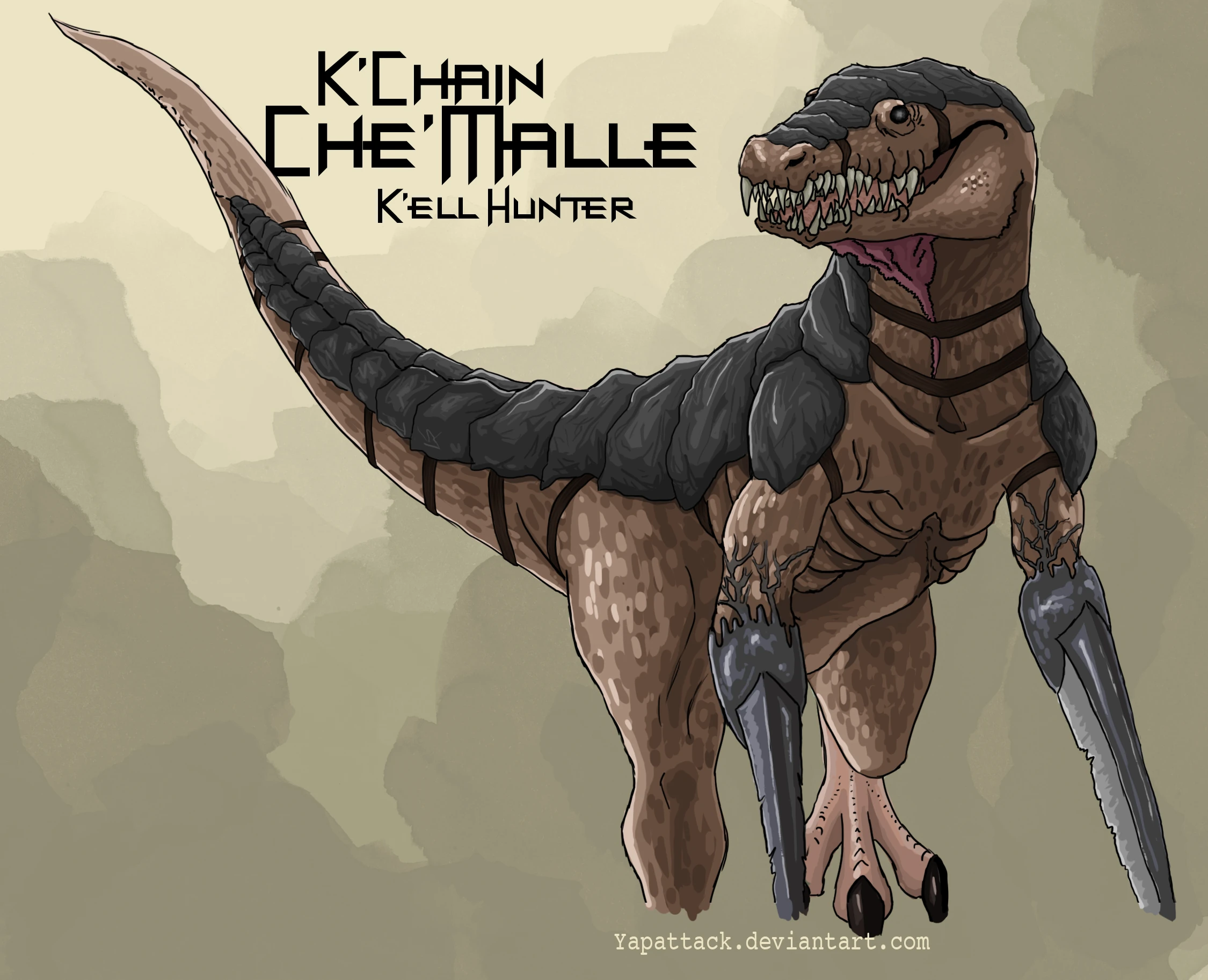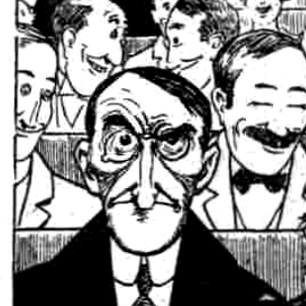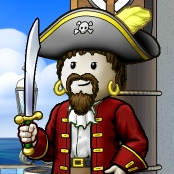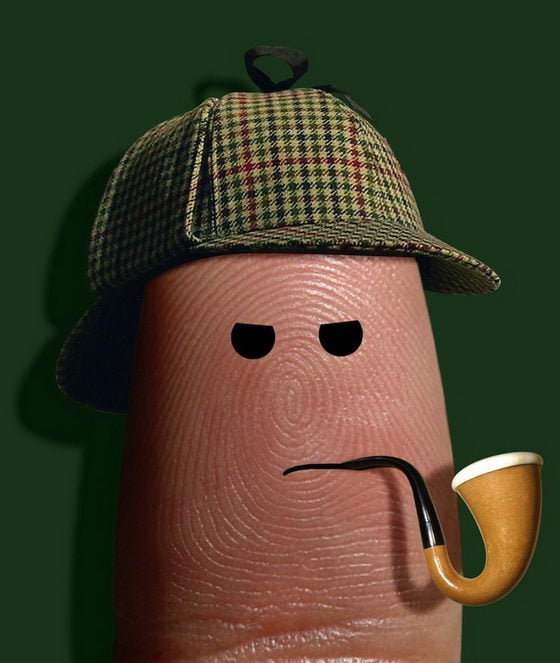I love goblins and lizardmen. Goblins because deranged little dudes running around is always a blast. Lizardmen because alligator people with melee weapons are the way I wish dinosaurs evolved instead of being birds.
K’chain Che’malle. Fricken’ dinosaurs with fricken’ sword arms.

Fricken’ dinosaurs with fricken’ sword arms.
The undersells them by a lot! That makes them sound comparable to Deathclaws in Fallout, but K’chain Che’malle scared gods!
Yes. This pleases me.
Tieflings. The “alignment” section of the 5e PHB (before they decided describing alignments was racist and removed it) read:
Tieflings might not have an innate tendency toward evil, but many of them end up there.
Which is such a powerful storytelling device. It does what sci-fi and fantasy are so often great at: comment on real-world social issues with a step of indirection that makes the story feel less on the nose. Their internal innate selves are indistinguishable from humans, but because they have horns, a devil’s tail, and often reddish skin, people assume they’re evil and treat them accordingly.
It’s an element that is handled so excellently by Erin M. Evans in her Brimstone Angels series:
A woman stood in the doorway opposite the bench, watching Farideh with a wary eye, no subtlety in her distaste. Farideh shifted uncomfortably.
“You waiting for someone?” the woman said after an interminable time.
“My friend,” Farideh said. “He won’t be long.”
“Buying spices from another devilborn.” She sniffed. “Your kind do like to stick together.”
Farideh’s tail flicked nervously. She pulled it closer to lie along her thigh. “My friend’s human, many thanks.”
“Is he now?” Farideh met the woman’s skeptical gaze. Without the ring of white humans were used to, Farideh’s eyes were unreadable. Emotionless. Inhuman. The shopkeeper could stare as long as she liked and Farideh knew she wouldn’t see anything there, not without practice.
“Do you want me to have him show you?” Farideh said. “Or do you want to say what it is you’re getting at?”
Farideh knew perfectly well what the shopkeeper was getting at: she didn’t belong here. Whatever clientele the shopkeeper was used to dealing with, a seventeen-year-old tiefling trying to rein in the tendrils of shadow that curled and coiled around the edges of her frame was not a part of it
Longer excerpt available on author’s blog. (It’s book 3 of the series, but no significant spoilers here.)
Of course that’s only one small part of the characters, but it’s done so well. They’re well-rounded full people who, like any real human, have to deal with getting through life (in their case, fantasy action adventures) while other people react to them.
I believe getting rid of innate alignments was the right choice. The racism might have been why, but the issue I always took with it was the alignments being too broad and ill-defined.
In general I don’t mind getting rid of alignment. I just think that D&D did a really clumsy job of it. Look at the Pathfinder 2e remaster for a much better way to go about it. Paizo removed alignment in a way that actually improved the flavour and variety of the game.
But with the 5e tieflings in particular, removing that one paragraph from their statblock completely takes out a lot of really evocative ideas. It was also accompanied by the removal of most of the sidebar flavour text for tieflings, which previously read:
Mutual Mistrust
People tend to be suspicious of tieflings, assuming that their infernal heritage has left its mark on their personality and morality, not just their appearance. Shopkeepers keep a close eye on their goods when tieflings enter their stores, the town watch might follow a tiefling around for a while, and demagogues blame tieflings for strange happenings. The reality, though, is that a tiefling’s bloodline doesn’t affect his or her personality to any great degree. Years of dealing with mistrust does leave its mark on most tieflings, and they respond to it in different ways. Some choose to live up to the wicked stereotype, but others are virtuous. Most are simply very aware of how people respond to them. After dealing with this mistrust throughout youth, a tiefling often develops the ability to overcome prejudice through charm or intimidation.
That got cut down to the far more brand-safe but dead boring:
Met With Mistrust
Ignorant people tend to be suspicious of tieflings, assuming that their infernal heritage has left its mark on their personality and morality, not just their appearance. The reality is that a tiefling’s bloodline doesn’t affect their personality. They are gifted with magic from the infernal realms but chart their own course in life.
Because tieflings were my absolute favourite race in D&D (thanks in no small part to Ms Evans’ excellent writing), I was really, really disappointed by the changes. Those changes, as well as all the others that came out around the same time (removing whole pages of content that had already been purchased without any recourse), played no small part in my decision to switch over to Pathfinder
I know it makes me super basic but… dragons. I know, it’s not inspiring. But I must add a caveat. I prefer that they are intelligent, on par with or surpassing humans in intelligence and willing (if reluctantly) to interact with them. Game of Thrones dragons are cool and all but they don’t really do it for me in the same way as, say, the dragon from Dragonheart.
Basic is good. In fact I asked this question because I wanted to get a “vibe check” on what people thought was iconic.
If a dragon is looking down on us magic less short lived specifies as trash what is the point? I want my dragons innately magical in strange ways, clever and older. I enjoy a rampaging dragon but even better if they are doing it on purpose
Kobolds deserved the place in the player’s handbook that dragonborn got. Those little scrappy fuckers maybe being the actual scions of dragons appeals to me in a way that dragonborn just do not.
Pathfinder would like a word. Particularly 2e. Seriously though, the kobolds are great pcs in that system.
For sure, they’re great in 2e. I remember that -4 penalty to strength in pf1e and their poochie-esque Wyvaran cousins trying to dragonborn it up tho
Probably dwarves - they’re not that exotic but I really vibe with them… for something more out there I’m a big fan of Yuan-Ti, they have spectacular lore and it’s always tickled me that their most human-like form is basically considered low-born while the pure bloods are full on snakes.
Dwarves definitely take the cake for me though, big beards, stout, egalitarian, sometimes greedy - but always devout craftsfolk. As a big gender non-conforming man with a bigger beard and an intense love of my craftwork, I really vibe with them.
… I am a dwarf, and I’m digging a hole Diggy diggy hole, diggy diggy hole
I love dwarves too. If I had to pick another race it would be the Nac Mac Feegle from Discworld.
I couldn’t even understand the text I was reading at first when they talked, but once I figured out the accent I loved reading them. Plus the only thing they’re afraid of is lawyers.
I love the classic elves and dwarves as fantasy races. They don’t give a shit about our human centric concepts of gender roles. Dwarf women have large beautiful beards and elf men wear long flowy clothing with their long scented hair.
their most human-like form is basically considered low-born while the pure bloods are full on snakes
Wait, what ?
Snake people is a decent answer, but dwarves are not typically considered monstrous.
Interesting use of terms. In Discworld Dwarven society, being lowborn would be a good thing and while being high born is only one step below surface dweller. The dwarves are ruled by the Low King (or Queen). The lower you are, the deeper you are in the mine, and the more rich and important you must be.
Sphinxes or lamia. The cruel intelligence of man with the refined predatory abilities of felids/snakes. What a match!
Kenku! Little crow folk who can only speak in mimicry. I made it all the way through the D&D 5E adventure Wilds Beyond the Witchlight as a kenku bard, taking enormous amounts of notes of the things I heard so I could go back to find things to imitate.
I mean at the core of it I actually just love crows, but kenku are a really fun challenge to RP and their current abilities in 5E are very conducive to creative usage
Awesome, I love the idea of building a working library of dialogue to make use of. Technically mimicry would mean having no actual understanding of the phrases actual meaning so it would have to be coincidental to say something useful in context… but it would be such a fun mechanic I would find some way to hand-wave it into making sense.
Might also be fun to extend the mimicry to physical mimicry too. Maybe picking up something that you have seen X number of times. Though that would add even more data tracking, hehe.
Ehhh it’s literally a magic curse, I’m okay with ignoring the details of how real life mimicry works. Going by old lore they also couldn’t come up with any new ideas of their own either, but this makes them kind of impossible to actually use as characters, so I’m content to ignore that as newer stuff seems to
Ah ok, they already have a built-in hand-wavey mechanic to explain it. That’s handy. Extrapolation from their inability to think creatively and only mimic, it seems like that would indeed set up for physical mimicry too. But that would probably get old fast, since it would have to be at the expense of gaining stuff naturally with levels. You’d either have to be trained everything you want to know, or have the DM set up encouters that makes sense for picking it up eventually. Maybe fun for the first couple levels, but just unnecessary tedium as it goes on.
Certainly makes more sense fun-wise to retcon the scope of the curse to a more limited handicap. Something that fits the scope of a single hardship slot.
Skaven yes yes.
Pushing the boundaries of the question, but 40k orks! How can you not love the big green lugs?
And intensely stylish squigs to wear on your head so you can swap out your “hairstyle” at will!
40K orks doesn’t really fit, but orcs in general do. 40K just happen to be the best version of orcs. I’m a Badmoons painter myself.
I think it’d be fair to consider them a sub race of orks, not much goofy lovability about Tolkien orks but you can’t help but smile listening to Ork hijinks
The orcs from orcs must die probably fit in a similar sub race
The 40k orks do have a couple of Warhammar fantasy counterparts, at least. I’m not sure how similar in personality they are (a brief search suggests the Old World ones were more like 40k’s orks than Age of Sigmar’s orruks are) but they at least look similar on a surface level
Original warhammer fantasy orcs were more like Middle-Earth Uruk-hai, they even had women, and hobgoblins being steppe nomads analogues were doing normal nomad things, just with big wolves instead of small horses. 40k orks were kinda separate as they started as satire on british football hooligans. But as mext editions came they were defined as the current fungal sexless species and fantasy orcs followed suit (probably to take away the troubling concepts like “misogyny”, “sexual assault” or “logistics”).
Orruks seems to me exactly like last iteration of Old World orcs, both differing from 40k orks in development level and lesser population increase ratio.
Thanks! I was always more keen on 40k so my awareness of goings on in the fantasy side are more tangential
Oh, there were also half-orcs in 1st edition of WFRPG, which also implies very much about orcs.
They look so similar in fact that I kitbashed a box of Ironjaws Orruk Ardboys with some 40K Nob bitz to create Eavy Metal Nobz. The fantasy legs are shorter so I have some cut up sproose to act as bricks for them to stand on.
I feel like Beholders are the product of some nightmare fueled fever dream. They fascinate me endlessly.
Fun fact, fever dreams are how beholders reproduce
Do biblically accurate angels count?
Sure.
Weeping Angels
I’ve always loved dragons in fantasy genres, specially intelligent talking ones that are on the mcs side.
Also like slimes and love when fantasy worlds play around with different types of them
I am very grateful to my DM for allowing me to play as a gelatinous cube that had absorbed a headband of intellect. Such a fun character to play!
I have a tiny little idea bumping around my head for a setting where dragons are not only intelligent but are the apex species. I think it’d be cool to base them off solitary predators like bears, jaguars, etc, as it means they would hate cooperating but would grudgingly do so if necesaary.
Dragons!
To play as in RPGs, I like big stuff and little stuff. Like orcs and goblins. Or very non humanoid stuff like slimes.
In general, idk, I used to really love gnomes (warcraft/d&d style).
Edit: I totally missed the word monster in the title. I like shapeshifters, oozes, any sort of undead besides the typical zombie and ghost, and probably most of all are demons.












